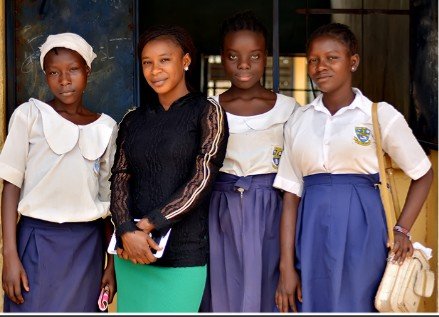Throughout history, the central role of women in the society has ensured the stability, progress and long-term development of nations. Women, notably mothers, play the largest role in decision-making about family meal planning and diet. And, women self-report more often their initiative in preserving child health and nutrition.

THE ROLE OF WOMEN IN THE
WORKFORCE
Today, the median female share of the global workforce is 45.4 percent. Women’s formal and informal labor can transform a community from a relatively autonomous society to a participant in the national economy. Despite significant obstacles, women’s small businesses in rural developing communities not only can be an extended family’s lifeline, but can form a networked economic foundation for future generations. The role of women in the urban and rural workforce has expanded exponentially in recent decades.
“When women are empowered
and can claim
their rights and access to land, leadership, opportunities and choices,
economies grow, food security is
enhanced and prospects are improved
for current and future generations.”
– Michelle Bachelet, Under-Secretary-General and
Executive Director of UN Women

THE ROLE OF WOMEN AS CARETAKERS
Women are the primary caretakers of children and elders in every country of the world. International studies demonstrate that when the economy and political organization of a society change, women take the lead in helping the family adjusts to new realities and challenges. They are likely to be the prime initiator of outside assistance, and play an important role in facilitating (or hindering) changes in family life.
“Rural women play a key role in
supporting their households and
communities in achieving food and
nutritional security, generating
income, and improving rural livelihoods
and overall well-being.”
– UN Womenwatch Organization

THE ROLE OF WOMEN AS EDUCATORS
The contribution of women to a society’s transition from pre-literate to literate likewise is undeniable. Basic education is key to a nation’s ability to develop and achieve sustainability targets. Research has shown that education can improve agricultural productivity, enhance the status of girls and women, reduce population growth rates, enhance environmental protection, and widely raise the standard of living. It is the mother in the family who most often urges children of both genders to attend and stay in school. The role of women is at the front end of the chain of improvements leading to the family’s, the community’s long-term capacity.
THE ROLE OF WOMEN AS GLOBAL VOLUNTEERS
Global Volunteers’ community development work in host countries worldwide strengthens women’s and children’s capacity and supports their sustained health and development. Under the direction of local leaders, our volunteers help ensure academic accessibility, foster parental involvement, offer psycho-social support, provide nutrition and health education, fund girls’ scholarships, construct schools with girls’ bathrooms, tutor literacy, and numeracy, and so much more.
Copyright ©2020 @edeejosh All rights reserved.
All images and text published on this
post are my original work
I encourage everyone to use their own texts,
thoughts and images as much as possible
Be yourself and stay yourself
Lets build Steemit together
